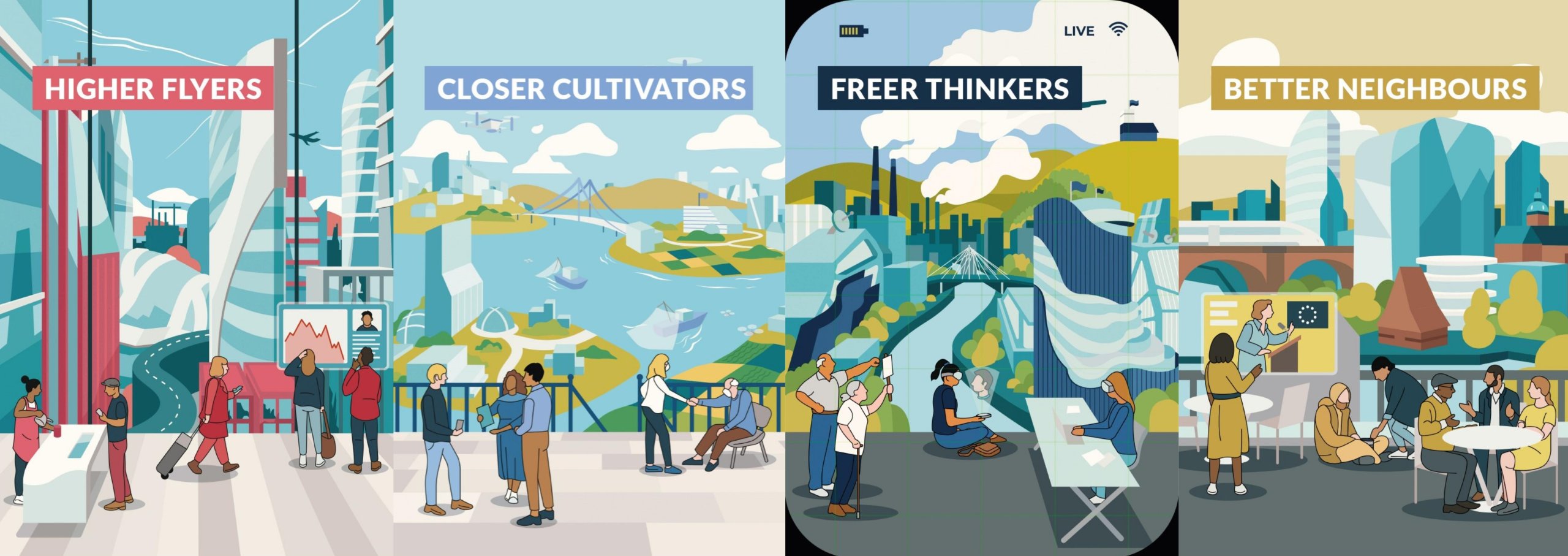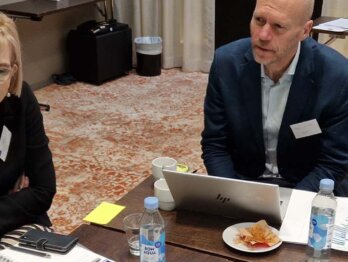The Future of Public Sector Talent Management in Slovenia: Anticipation and Scenarios

Will in-person work be a distant memory 15 years from now? Will ministries’ offices only exist in cyberspace? Or will AI-powered bots become the norm when interviewing potential job candidates?
While the answers to many questions like these are impossible to know today, one thing is certain: working in the future will be very different from what it is now. This will not only be determined by new innovative technologies, the disappearance of certain jobs and the creation of new ones, but also by societies’ broader structural changes that will impact the expectations of organisations and individuals, re-shaping labour markets in a myriad of ways.
Many complex and interconnected factors will contribute to these changes, including climate change, new political movements and demographic shifts – giving rise to unprecedented challenges for governments and public organisations. In this context, attracting and retaining high-skilled employees will become increasingly difficult and require more attention and resources, especially as the capacities, skills, and needs of workers evolve.
Governments are increasingly making more proactive use of strategies to adjust workforce management to the needs of specific groups in order to fulfil organisational objectives. This is a practice known as ‘talent management’.
In a context of uncertain futures and constant change, talent management is becoming increasingly important to help governments build the capacity to prepare. At the same time, public administrations need to be increasingly aware of the rapid change and complexity they face in order to develop and deploy talent management strategies that continue to enhance productivity and efficiency of government workers, increase their job satisfaction and ensure their well-being.
Acting in spite of uncertainty
Anticipating such challenges and reflecting on their potential implications can bring several benefits to public organisations, including strengthening their ability to confront and adapt to future changes and preparing them for unexpected shocks. For this reason, OPSI partnered with the Slovenian Ministry of Public Administration to work on perceiving, making sense of, and developing actions to respond to some of the most surprising and significant future developments emerging in the present. Such a process is known as strategic foresight and anticipatory innovation.
The approach was to create four alternative descriptions of deliberately fictional future worlds that could be used to test the assumptions and limits of our knowledge about the future. These descriptions, known as scenarios, are tailored to the public talent management system to stimulate discussion and lead to actionable innovations in the area (full report here). The approach involved a variety of workshops with experts from the Slovenian administration, OECD subject matter experts and other key stakeholders. Our overall process followed five main steps:
- Exploring the strategic environment
- Identifying potential changes of surprise and significance
- Drafting scenarios and obtaining expert validation
- Identifying implications for the broader contextual environment, while focusing discussions on local and present realities
- Taking action through prototyping experiments and innovations
Four scenarios to explore the future of talent management in the public sector
The four scenarios that resulted from the first three steps attempt to explore alternative futures for Slovenia’s talent management system. These are:
- Higher Flyers: a highly globalised digital world where talent is mobile and delocalised and where opportunities are unequally distributed. In this future scenario, public services outsource many of their tasks to other labour markets in search of better and cheaper talent.
- Closer Cultivators: a world where pandemics and disasters lead society to reconsider the value of local supply chains and to value rural life. Public organisations are fully adapted to remote work and talent moves outside of urban centres.
- Freer Thinkers: a world where algorithms and artificial intelligence become dramatically greater factors in determining how people live their lives. AI decision-making contributes to citizens’ renewed trust in public institutions. However, ethical concerns arise over who designs these algorithms and how this is done.
- Better Neighbours: a world where the government of Slovenia and the EU are able to regain the trust of citizens thanks to better transparency and freedom of information measures. This contributes to greater representation of different groups in political processes and decreased inequalities.
Four innovations
Discussions of the scenarios in prototyping workshops with policy and talent management experts led to the development of four actionable innovations that the Ministry can potentially put in place to prepare itself for the future challenges envisioned through the strategic foresight activity. While the innovations were not designed to address any scenario specifically, they represent options to address present-day uncertainties and develop strengths that were revealed through the scenario-building exercise. These include:
- An internal project marketplace to increase the flexibility and efficiency of work allocation and match the best skills with the needs of each project.
- Intergenerational dialogue to address an ageing workforce and solicit the imagination and knowledge of age-diverse groups to address real-life problems or challenges faced by public administration.
- Personal five-year plans for individuals to discuss and envision their career development with their managers, improving public-sector attractiveness and increasing the anticipatory skills of employees.
- Novel forms of manager training to help meet the need for managers to evolve and adapt into multiple competency areas over their professional lives, promoting cross-disciplinary transferrable skills and increasing their awareness of new technologies and their implications for the public sector.
So what? Relevance to other actors
Strategic foresight helps governments and organisations to deal with complex, interconnected challenges, enabling them to reflect on the broader changes that may affect their work. While the future is always partly unknown, investing time and resources into building anticipatory innovation capacity is possible and can play an important part in addressing citizens’ needs more promptly and effectively, already in the present. You can download the full report here and read more about strategic foresight and anticipatory innovation governance in OPSI’s publications.













